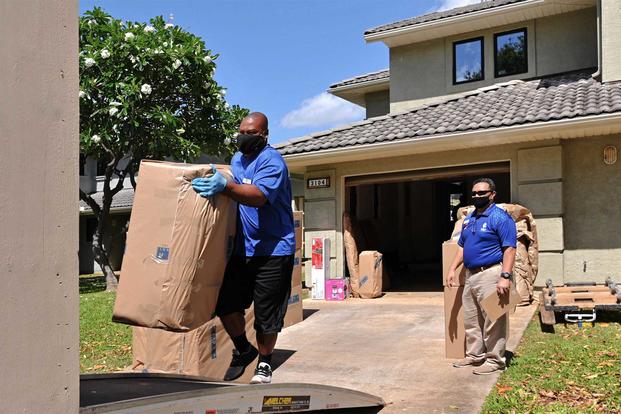42% of service members of color in a new survey turned down an assignment or permanent change of station order because of concerns about racism and discrimination, even when they knew doing so could negatively affect their career because of perceptions of racism in the local community.
The survey, organized by Blue Star Families, found that more than 40% of active-duty family respondents also factored in concerns about racial discrimination or safety when listing their basing preferences.
About 33% of active-duty families and 34% of veterans in the survey also reported that concerns about racial and ethnic discrimination were a factor in conversations with family members about whether to stay in the military.
Read Next: Another Leaked Video Offers a Dramatic View of F-35C Crash Aboard Carl Vinson
The findings were part of the Blue Star Families' "Social Impact Research 2021: The Diverse Experiences of Military & Veteran Families of Color," which surveyed 2,731 people, including 622 active-duty spouses, 303 active-duty service members and 306 veterans.
Researchers stressed several limitations with their methodology, which sought out respondents of color rather than getting a random sample, meaning the results aren't statistically representative of all active-duty and veteran families of color and do not include a comparison group of white respondents.
But Blue Star Families argued the survey still represents an important starting point for an area of research that has been lacking.
"Around the George Floyd murder and the unrest that summer, we started to recognize that one thing we hadn't been paying as much attention to as we should have is, what are the experiences of military families of color," Kathy Roth-Douquet, CEO of Blue Star Families, said last week at a virtual event launching the report. "What we came to understand is, actually no one had ever asked these questions before. ... There's sort of a culture of silence about this because it's not what we aspire to be or what we aspire to experience."
The majority of service members surveyed -- about 79% -- said being in the military has had a positive influence on their professional growth, and 70% said they feel respected by their peers and a sense of belonging in the military.
But many also reported safety concerns, racial profiling by police, racial slurs and other forms of discrimination.
57% of active-duty family respondents reported hearing military-connected peers make racist comments or jokes and about 46% said they have been the subject of slurs or jokes in their military community at least once since January 2020, according to the report.
About 41% of active-duty family respondents said they feared for their personal safety in their military community due to their ethnicity or race at least once since January 2020, with some citing displays of the Confederate flag or discussions about politics "in ways they viewed to be coded racism" as factors that made them feel unsafe.
And about 33% of Black active-duty family respondents reported being racially profiled by military law enforcement at least once since January 2020, compared with about 36% who said they were profiled by civilian law enforcement. Still, about 49% of Black active-duty family respondents reported trust in military law enforcement, compared with 30% for civilian law enforcement.
Meanwhile, about 39% of active-duty service member respondents said their race or ethnicity "significantly" or "slightly" hurt their ability to get ahead at work, including about 48% of Black respondents.
"This is just the beginning of the work ahead," the co-chairs of Blue Star Families' racial equity and inclusion committee wrote in the 189-page report. "It is our hope that findings from this report will serve as a framework for policy and program recommendations that will help improve the service experiences of military families of color, strengthening our military overall."
-- Rebecca Kheel can be reached at rebecca.kheel@military.com. Follow her on Twitter @reporterkheel.
Related: Air Force Leaders: Time to 'Wake Up' About Racial Disparities in Service











